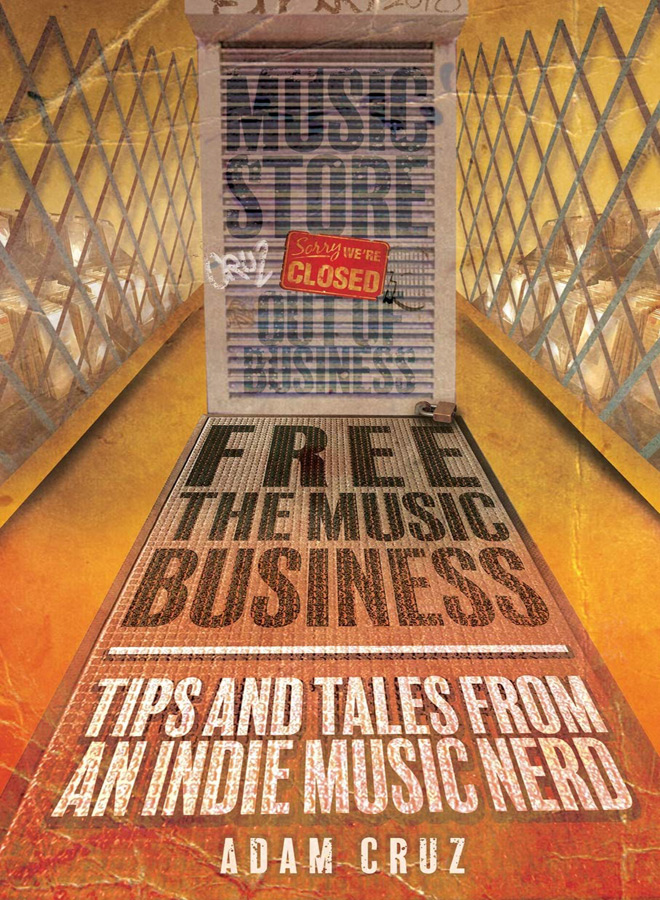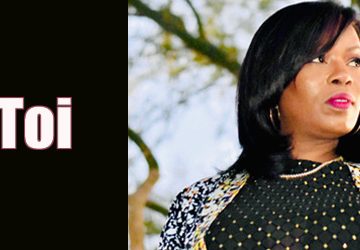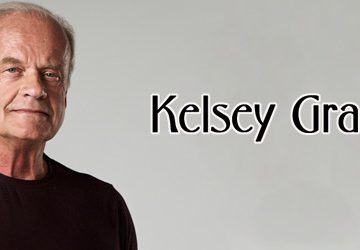Let’s face it, we are living in some of the most uncertain times in modern history. In the entertainment industry, that fact rings even louder, and not just because of the recent pandemic to sweep the globe, but a problem that dates back over two decades, digital music consumption.
A new medium which emerged to the populous of listeners in the late ’90s, it became a thorn in the side of record companies/artists that quickly changed the game as we know it. Fortunately, thanks to intelligent music people like Adam Cruz, the seas have been rough, but navigated. Cruz – a DJ, producer, songwriter, recording artist, and record label owner – has been in the industry for many years, a factor which has afforded him a wealth of knowledge. At one time an executive at the famed Dance label West End Records, Cruz continues to make his way in the world of music, and now offers an education in his new book Free the Music Business: Tips and Tales from an Indie Music Nerd. Providing information to artists of all types on how to keep afloat and even thrive during difficult times, it is a must read that you cannot afford to miss. Recently, Cruz took the time to provide some compelling insight to his book, draw out a plan of success for independent artists, and a lot more.
Cryptic Rock – You have been involved in the music world many years now, as a DJ as well as an executive in the industry. How would you describe your career thus far?
Adam Cruz – I think I would describe my career in music as a love affair. I have really tried to explore themes around music as therapy, as well as a sound business. I think I’m on this journey where I am looking at these two things concurrently. The business of it as well as the connection to it in terms of the therapeutic qualities, as well the spirituality. I have a very spiritual approach to music because it’s been so impactful in my life.
Cryptic Rock – And you certainly have done a lot in your time in the industry. Now you have your newest book, Free the Music Business: Tips and Tales from an Indie Music Nerd. How did this come about for you?
Adam Cruz – The book came about after I released my third album and was promoting it. A DJ friend I’ve known in D.C. moved his family back to his country of origin, which happened to be Sudan, Africa; he moved his family back to Khartoum. When I was promoting my third album, I sent him a copy and he responded favorably. He let me know he purchased a radio signal in Khartoum and that he was airing my album in it’s entirety; that is something that just doesn’t happen in the US.
Out of that came a back and forth about the possibility of me broadcasting on his station in Africa. We agreed on how we would do that, and for a long time I have been getting calls from various artists inquiring about various things in the music business. Things like publishing or maybe they had a producer they broke up with, so now they were going off on their own, and they called me to ask for advice on how to start launching their own label.
What I did was to produce a one-hour music business show which mixed music and business talk together. I’ve been doing that now for eleven seasons broadcasting in Sudan on Capital Radio 91.6 FM. Then, in the States, I have the ability of you hearing my show every week through various platforms; live at DJAdamCruz.com, my YouTube channel, and I also have a free app.
The book all came about because it was a collection of the episodes over the eleven seasons. I just started to chronicle the rise of streaming music as I experienced it. This was at the same time of running an old Disco label, West End Records, which was quite popular in the ’70s and ’80s. At the turn at the millennium my job was to keep the old music alive in new ways, as well as get us into the digital world. One of my may jobs when I ran West End was to digitize the music. That really made me pay attention to the dollars and cents, meaning how much we were earning per stream; which happens to be a fraction of a penny. I also had the experience of trying old methods of putting music out. We had fans who were nostalgic that wanted vinyl and live events that catered to that old New York City feel. I was dealing with a duality here. I think the book chronicles my experience around that label, and also what happened with streaming music as I was trying to figure it all out.
Cryptic Rock – Very interesting. And this is based on personal experience: this is not just theory, this is something you learned from real work as you went.
Adam Cruz – Exactly. I think I’ve really prided myself on infusing my personal experience. I don’t know about you, but for me, I learn best by really learning how these theories work in real life. I was trying my best to talk about the history of streaming music, while at the same time how I tried to apply what I knew at the time. I hope for the reader that adds an interesting layer or perspective to the story.
The book was released around Christmas time of 2018, so I’ve spent the better part of a year now promoting the book. I’m self-published and the book is available on Amazon Kindle, as well as a narrated audio book, which is also available on Audible. I also released a soundtrack associated with it because I believe very much in pairing, which is another form of using other means of content to drive attention to a central point. In this case I’m trying to pair other things and centralize that attention onto my website where you can find information about the book, podcasts, etc.
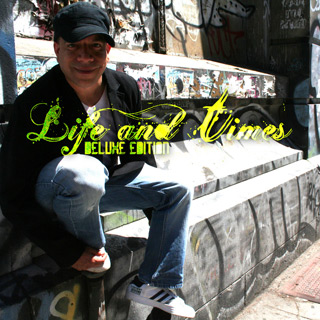
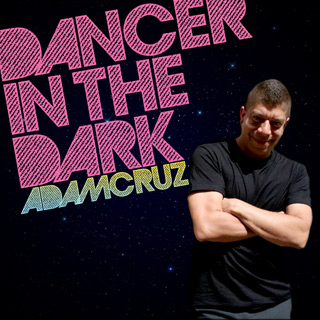
Cryptic Rock – It sounds like it a very educational book. It is amazing how things changed so quickly in the business when music became digitized. Not only from a business standpoint, but also for consumers. As you stated, there are still a lot of people who want a physical format.
Adam Cruz – Yes. Again, because I’ve been studying this to cover it for the radio show, and just knowing about it as a student of the craft, I’ve figured out that two things have come out that are described as permanent in the market place. What do I mean about that? Right now we have various modes of consuming music. When you think about CDs, vinyl, downloads, and streaming, there are only two things that all research shows is still permanent; that is vinyl and streaming music. In the US, the last reports from IFPI have indicted that 80% of music is consumed online via streaming.
The other thing that is also permanent is vinyl. It is not the motherload of income for artists, it’s only a few million, but it’s steady. You want to ask yourself, why is that happening? Well, young people have been gravitating toward popular albums; perhaps an Amy Winehouse album might be of interest to them to have on vinyl. We aren’t seeing the spike in vinyl sales in niche market music, such as what I love, which is Dance music. It’s still predominately download in Dance music right now. In the wider world, vinyl is still quite permanent though. It is just not the motherload of income that downloads and now streaming are.
Cryptic Rock – It is a lot of information to adsorb. We are now almost two decades into the complete digitization of music, so we can see things a little more clearly at this point, correct?
Adam Cruz – Yes. Now we have this 20-year period where we can start to look at the impact of streaming music. As a label person, there was a lot of enthusiasm with streaming as a way to curtailing piracy; which was plaguing us for many years – we couldn’t get control of piracy. Mind you, this was after experiencing Kazaa, Napster, and LimeWire. When streaming came, for many, it spelled a complete marginalization of piracy as well as a a total blocking of piracy. Why? Because why would you need to pirate something that you can get for free if you just search for it on YouTube or Spotify using their free trial?
The book is a double entendre. “Free the music” is what happens when you are searching for music, you get it for free, and how little the artists get by you listening to that stream or watching that video stream. Also, “Free the music” is a play on a fact that, in many ways, the music business has allowed itself to be shackled by its own narrow-mindedness.
Cryptic Rock – These are all very important topics. You touched on how artists are not making much on their music. What do you think the future is for artists? Especially in a pandemic world right now where they cannot play live shows.
Adam Cruz – You are talking about a lot of layers here, so I will try and tackle it the best I can. I feel like the future of artistry will still be predominately stream-based, but it will leave the artists to be dependent on pairing and windowing his or her music. What do I mean by that? You can no longer release music without a strategy in place or a pairing. What I mean is, when it comes out, there also has to be something else that is happening to celebrate or drive attention to that release.
In my case, I have music that I release and I try to pair it with birthdays or the beginning of a DJ residence in the summer, etc. Pairing is a good idea because you can also dive more deeply into what your customers or audiences want. Yes, you will have to do your homework to know that, but once you do figure out what your audience wants from you as an audience, it is quite fulfilling to have a direct relationship with your fans. If you are signed to a label, a lot of this information is something you are left in the dark about.
The other thing I want to talk about in the future of artistry is the importance of windowing. What do I mean by that? It is about releasing music and the right way. It’s about doing your homework and figuring out which of the streaming services or download services that you’re embarking on have the highest rate of return for you as an artist; that ROI, return of investment. The same applies in music.
The one that is the largest investment is window number 1. Window number 1, in my case, is Bandcamp. Bandcamp allows me to have the closest to full dollar per stream or download. It also allows me to make the page look exactly like a page on my website. For branding purposes, I very rarely mention Bandcamp; I just say go to my website and it’s a page on my website.
I’m in Dance music, so window number 2 represents where my audience lives next. In that case it’s Traxsource.com and Beatport.com. Anyone into Dance music usually knows those two websites. For example, say I am releasing something July 4th. I would let it live on my website via Bandcamp for 2-3 weeks. After that, then it appears on window number 2 for 2-3 weeks. Then I let it live on window number 3, which in my world, represents all over websites. Why? Because window number 3 is a fraction of a penny for a stream. With window number 3, I would have to depend on you to listen to my singles thousands of times to be the equivalent of getting a cellphone bill paid.
A case for us to look at is Pharrell Williams. While the settlement is not for us to look at, the allegation and lawsuit that was issued against YouTube many years ago by Pharrell was for the song “Happy.” For millions of stream counts around YouTube, Pharrell earned a reported $9,600. He sued YouTube, because obviously for millions of streams you get a paltry amount. It’s not the totality of what he earned, but if you could look at that case, Pharrell sued YouTube for that paltry amount he got. That was after they had now earned billions of dollars.
Cryptic Rock – Wow, these are very important things for artists to learn. You have to be very strategic and take matters into your own hands.
Adam Cruz – Yes. Another thing I wanted to touch on is an artist as impacted musician or and artist as embraced musician. What’s the difference? During a pandemic the embraced musician makes lemonade out of lemons, so to speak. He or she is doing virtual coaching and still earning income. They are also hosting a virtual concert and pairing that virtual concert with links to their material and providing new merchandise opportunities online.
The impacted musician, alternatively, is quite paralyzed from the entire experience. He or she is very unwilling or feeling unproductive, in terms of doing anything for his or her artistry. During a pandemic what we realize as artists is we are probably both. We will have to work with the adversity of what it feels like to be quarantined for a long time. There is a joke that says us artists thrive during a quarantine because we spend so much time in a studio. That’s certainly true, but quarantines and pandemics tend to have an ill effect on the psyche; especially if you’re an artist. I would just want to put out there the importance of identifying what you’re going through and to utilize family support, as well as therapy, to help you through what it means to be an artist during a pandemic.
It’s quite serious. I’m talking about theory right now, but the reality is artists are not able to earn any income; this is mostly because they are dependent on live events. That’s not happening right now, at least for the foreseeable future. It’s not the end all be all, it’s not one size fits all. You have to figure out what fits best for you as an artist. In this day and age we are no longer able to be dependent on one or two things anymore. You must be the artist, the negotiator, the lawyer, the educator, the promoter, and all of these things at once. Yes, it’s hard, but if it’s a passion you will always find a way.
